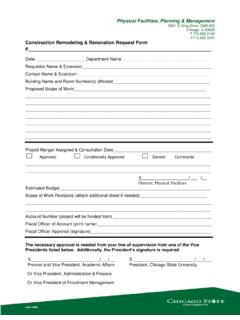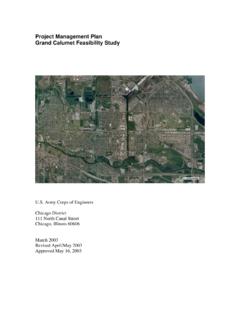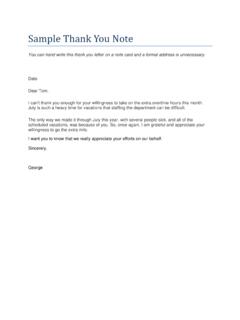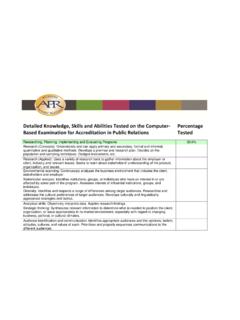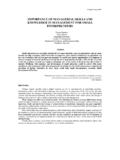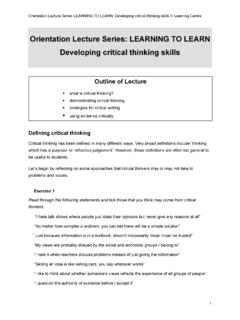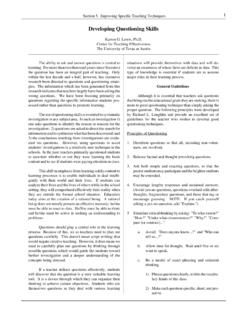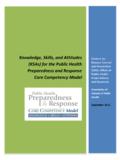Transcription of Developing Others - CSU Home
1 Developing Others Definition Must be able to develop and coach Others and constructively review the work of Others in order to improve and advance the skills , knowledge and performance levels of those who report to them. Key Words: Growth and Development; Performance Improvement; skills Development. Behavioral Indicators: 1. Identifies competency gaps for subordinates and develops personal development plans for employees. 2. Comprehensively assesses the performance of individuals assigned to the work-unit. 3. Gives detailed work instructions and/or on-the-job demonstrations. 4. Provides planned on-the-job learning and skill development opportunities for subordinates. 5. Recognizes and rewards (praise, etc) the expansion of skills and performance improvement.
2 6. Ensures budget allocations for staff to be appropriately trained to meet work standards. 7. Transfers and develops skills to work-unit employees. PROFICIENCY LEVELS: Developing Others LEVEL I Articulates tasks and expectations and sets realistic standards. Observes, assesses, counsels, coaches, and evaluates subordinate leaders. Motivates subordinates to develop themselves. Balances the organization s tasks, goals, and objectives with subordinates personal and professional needs. Encourages initiative. Maintains a work climate in which team members feel included and vital to the success of the team, and encourages Others to take on challenges. LEVEL II Diagnoses performance issues, and determines appropriate development approach to suit the individual s learning style.
3 Paces the level and quality of instruction or coaching to allow assimilation of the learning matter. Invests time in coaching and mentoring. Arranges specific assignments or projects to challenge Others and stretch their abilities and self-confidence. Gives Others the autonomy to approach issues in their own way, including the opportunity to make and learn from mistakes. Seeks training opportunities for the continued update of skills . Actively renews own personal and professional skills , applies them to new areas and remains current in area of work. Regularly contributes to, and takes from, relevant professional forums/bodies of knowledge . LEVEL III Contributes knowledge sharing in area of technical expertise in a complex and challenging environment, across campus or departments within own peer group.
4 Contributes to and helps implement the department s training and development strategy. Assesses organizational needs to formulate and implement development plans, outlining specific performance measure targets and goals. Mentors by investing adequate time and effort in counseling, coaching, and teaching their individual subordinates and subordinate leaders. Delivers innovative developmental solutions. Maintains relationships with senior human resources practitioners to ensure that learning is a valued strategic performance enabler. Ensures that training policies support the strategy and drive the desired behaviors. Reads benchmarks and learns across a wide spectrum and works to build the intellectual capital of the organization.

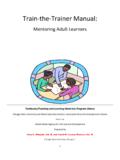
![Welcome [www.csu.edu]](/cache/preview/0/e/5/c/e/6/4/8/thumb-0e5ce64867fd8e84e02cdca7d89b0024.jpg)
